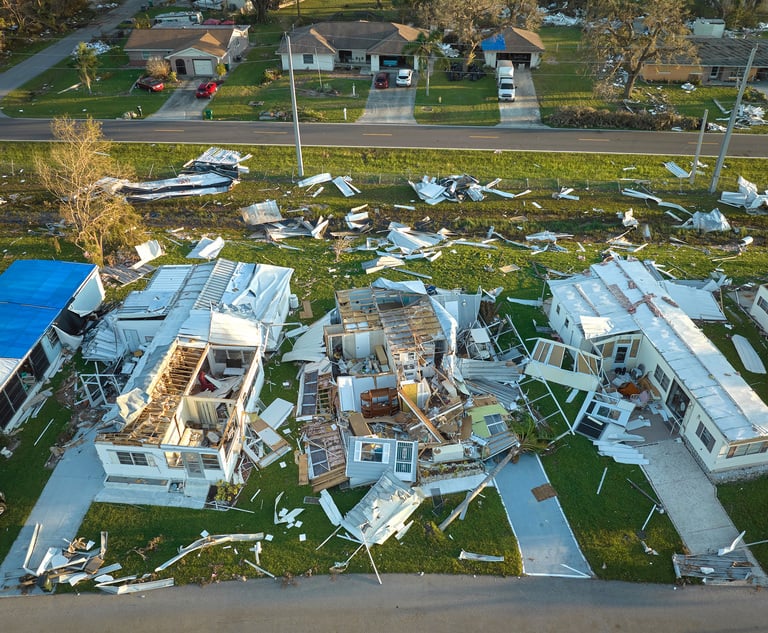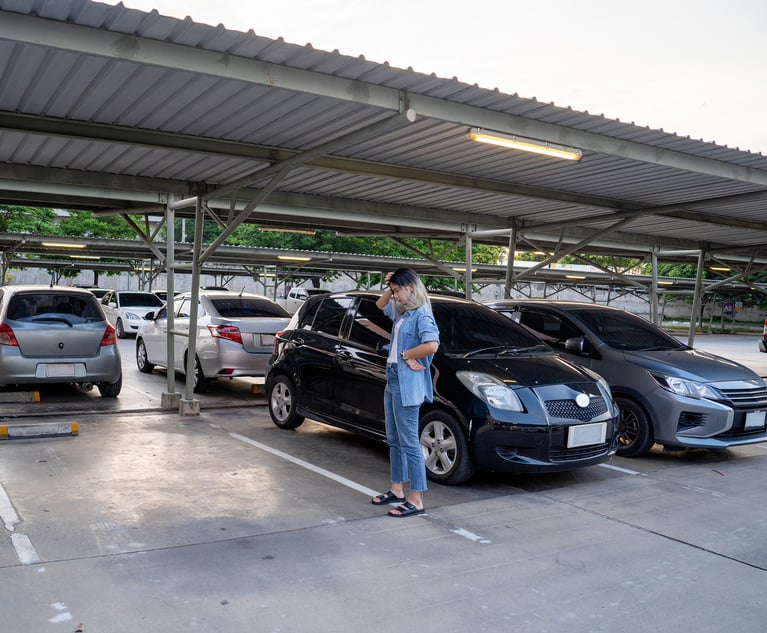It's not retirement, says Joe Plumeri, the chief executiveofficer of Willis Group Holdings, but just another phase in hislong career.
|After 12 years of steering the insurance brokerage firm throughturbulent waters Plumeri will leave his post on Jan. 7. He broughtthe firm through private ownership by the private equity firmKohlberg Kravis Roberts to public ownership in 2001; through theattack on the World Trade Center; New York Attorney General EliotSpitzer's prosecution over alleged kickbacks and steering ofbusiness in return for contingent commissions and the $2.1 billionacquisition of Hilb Rogal & Hobbs in 2008 as the greatrecession hit.
|He will serve as non-executive chairman through July 2013, whenhis contract expires.
|Recently, PC360 sat down with Plumeri to discuss hisreasons for leaving and share his views about Willis, the industry,climate change, contingent commissions and criticism of EliotSpitzer.
|Q: Why are you retiring?
|Plumeri: I'm not retiring. I'm leaving Willis. There's adifference between the two. I actually think that there is a pointin time where you've done your thing and it comes time to leaveroom for the next generation, the next group, to come in and takeit to the next level.
|In the past 12 years, we took a company that didn't make moneyand was not a force in this industry and brought it to its positiontoday.
|I think the worst thing I ever saw was Willie Mays try to stealsecond base when he was 45-years old. No one remembers Joe DiMaggioas a broken down ballplayer. Sometimes you just stay too long.Sometimes you outlive your stay.
|It's not that you're any less enthusiastic about the company.You just know that it is time and you know when the time is.
|Q: Do you know what the next phase of your career willbe?
|P: No, I don't. I know it will be something that will involvepeople. I would like to do something that engages me with a lot ofpeople and gives me the opportunity to make a difference inpeople's lives. I like people businesses and businesses that aredriven by people.
|I've always been in people businesses and run people businesses,and people have always asked me why do you like peoplebusinesses?
|I said, you make a machine, and it is built to do just so muchand no more, until they make another machine. Humans don't comeclose to being able to reach their potential. With the rightenvironment, the right motivation, and the right set ofcircumstances, everyone can do more. So it is exciting to seepeople motivated and enthused and doing things that they neverdreamed they could do. That's what I think leadership is about.
|Q: A lot has happen in 12 years. Has this job turned out tobe what you expected it to be?
|P: I don't know what I expected it to be, so that's a toughquestion. I don't think anyone goes into a job with an expectationof what it will be. I didn't write down what I expected.
|It's a global company; I expected to trot theglobe; I expected to learn more about the world than I knew before,that I expected. I expected to be on the airplane a lot; that wasdone.
|But in terms of expectation of the company, I don't think youthink in terms of expectation as much as you think of broad visionswhere you paint these murals in your head and think I'm going totake this company and make it something that the world knows isthere and makes an impact.
| That was the vision and expectation.
That was the vision and expectation.
Q: Did you expect to stay here for 12 years?
|P: No. I don't think anyone expects to be a CEO for that amountof time. You go in, do what you have to do, and then see where fatetakes you.
|I don't think there are such things as expectation levels likethat. Twelve years is a long time in CEO life, especially with thepressure to do well consistently over time. Then throw in thecatastrophes that have taken place, the regulations that have takenplace, the economic breakdown in the world over the past fouryears.
|When I look at the twelve years after enduring all that, and seethe shape the company is in, I feel good about what I am leaving.That is what you want to say, isn't it.
|Q: What do you feel are the high points and low points inyour career?
|P: I think the way we conducted ourselves during the Spitzerinvestigations was the high point. The integrity that we showed andthe integrity that we showed and the brand that is associated withthat integrity makes me feel better than any shareholder return orany other metric.
|The first thing that people say when you say Willis is integrityand that has to be the high point.
|The low point, professionally— it wasn't a point as much as astage—when we brought HRH.
|The financial crisis began and the degree of difficulty inacquiring a company under such financial duress—the markets beingsoft and the economy being bad, credit markets closed and stillgetting the deal done with financing at high interest rates and allthe issues that came along with that—that was a low point.
|We grew dramatically during eight years before that happened,and the low point began when we brought HRH on. It was not a lowpoint to buy HRH. I think the decision was the right decision. Ithink the timing could have been better. You don't havejurisdiction over timing.
|When you look back three years from now, I think history willreflect that it was a good decision. And after having enduredeverything that we endured, we're in a great place in NorthAmerica.
|Q: You took a very active role criticizingcontingent commissions. Are you disappointed with the way the issueturned out?
|P: I was criticized for my position, and even received a letterfrom an agent's association. But I never had a problem withcontingents, I just felt that clients need to know who yourepresent. Do you represent insurance companies or do you representthem. My issue was accepting them from anyone but your client andsimply telling people who you represent.
| I'm disappointed with the way it was handledby Spitzer. It was a perfectly legitimate topic to put on thetable. And I think the way he went about it was irresponsible.
I'm disappointed with the way it was handledby Spitzer. It was a perfectly legitimate topic to put on thetable. And I think the way he went about it was irresponsible.
He went after Marsh, irresponsibly. It has to be irresponsiblebecause nobody got convicted and he put a lot of nice peoplethrough hell.
|[He went after] Aon, [Arthur J.] Gallagher, and us and thenstopped. It was disingenuous on his part. I was genuine on theissue, because I thought it was a conflict. I said to him, if youare that genuine about contingents, why don't you simply bancontingents for everyone who does business in the state of NewYork—period?
|But it just seemed to be bad for three or four of us and not foreverybody, and I just thought it was not handled properly.
|It's almost as if he said, 'I got the attention I wanted nowit's time to move on.' And I think that's terrible.
|If he was that passionate about it, he would have gotten thembanded for everybody in the state of New York. That's whatdisappoints me the most.
|In the meantime, everyone else can take them from insurancecompanies that paid them. Then, after four years, the [bans] weresunset and they can go back and it's okay. It's just a totalfarce.
|Q: Do you think the way contingent commissions are paid willchange?
|P: This not a situation that is going to change. And my opinionis not going to change.
|I'm disappointed in clients not demanding change and that theydon't appreciate who pays brokers, and I'm not sure if we are astransparent as we should be. And I'm disappointed that the processstarted out in a way that challenged contingents and it turned intoa circus.
|Q: The industry just went through this disaster withSuperstorm Sandy. Do you think that the industry is responding theway it should? Are there lessons to take away from this?
|P: I think there is too much discussion about FEMA and notenough about the insurance industry. If you look at Katrina, it hadinsured losses of about $70 billion. The insurance industry paidabout $47 billion of it and FEMA and state governments paid therest. Everybody talks about FEMA as if it is an insurance agency.FEMA puts up tents. They give out food. They don't put up houses.The insurance industry puts up houses and we don't get credit forthe houses we are putting up. There's too much discussion aboutflood, wind and storm surge.
|Willis] had 1,200 personal lines claims and700 commercial lines claims and all our people were working thenext day after Sandy from home or someplace, trying to take care ofour clients. In our industry, you got to be open when someone elsehas a problem. I think we did that magnificently. And if you spoketo another insurance company or broker, I think they would havetold you the same thing.
|I think there is an education problem with the public about whatthe government does and what the insurance industry does. I thinkwe comported ourselves quite well. I think at the end of the day wewill have insured losses of $30 billion when everything is said anddone. A lot of business interruption and contaminationclean-up.
|The industry has a great opportunity now to help government tryto figure out what the effects are of these storms and how we'reall going to pay for it.
| Q: Do you feel that this is part ofclimate change?
Q: Do you feel that this is part ofclimate change?
P: There's something going on. I'm not going to tell you Iunderstand why. I can only tell you that spring use to be spring;summer use to be summer; fall use to be fall, and winter use to bewinter, and I can't tell the difference anymore. I don't know if itis caused by carbon. All I know is that the climate is differentand these 1 in 100 year and 200 year events are not so rareanymore.
|The so-called black swans are no longer black. They are at leastarguably grey.
|Last year there was over $300 billion in economic loss,primarily from natural disasters, not man made. There was $116billion in insured losses in one year.
|How does that translate? If I'm a CEO or in the government, Ihave to make sure that my electrical grids, my power and energysources are all backed up. That's why the issue of LIPA and thiskind of stuff is a big issue, because the infrastructure ofcounties and government was made for a different time and era. It'slike the streets in New York City. They were made for 1923 or 1930,not 2012.
|Now you have to re-think the world and re-think how you buildbuildings; re-think where you put buildings; re-think your supplychain if you're a business; re-think where your plant is;where your office is, and re-think where you are, and re-think allof this stuff if you think the world is different. And if you don'tthink the world is different, then I've got a bridge to sellyou.
|Q: What do you think about the future of the insuranceindustry?
|P: I think the future of the insurance industry is wonderful. Ithink the more risky the world becomes, the more importantinsurance becomes. I think if we change as the world is changing,so we become less insurance brokers and more insurance advisors,advise them about how people can sustain themselves, their family,their businesses, rather than insure their businesses, then whatmore vital part can you play than that in a society.
|Secondly, if the population explosion around the world is whatpeople say it will be, that by 2030 you'll have six billion peoplein the world, and 60 percent of those people will live in cities,then by definition you're either going to have a middle class withjobs or total chaos.
|If you have a middle class with jobs, then that means thosebusinesses are going to have to be insured and sustainable andresilient, which means insurance plays a big part in making sureall of that happens.
|So as the world becomes more risky, more complex, moreurbanized, more populated and different because of the climate andcomplexity of the world, then insurance has not seen its best days.The golden era of insurance has not occurred yet.
|We have 22 offices in China. Even though we do a lot of businessin China, relatively speaking, it is nothing compared to the sizeof China because they haven't figured out the importance ofinsurance yet. That is yet to come.
|Look at the continent of Africa and the explosion that is goingto take place in Africa. You haven't seen big swaths of geographyyet urbanized, commercialized, capitalized and therefore insuredbecause of all of that. That is why I say we haven't really seenwhat insurance can really do and the effects of what it canrepresent.
|Q: How do you feel about the developmentof a catastrophe fund?
|P: I think there has to be a private and a public partnership.If I were, hypothetically, the mayor of a city or the governor of astate, I would actually put together a commission that wouldanalyze (and I think the president should do this) how in thefuture, if Sandy's are going to continue to occur, how are yougoing to fund this stuff.
|You have a national flood insurance program, which by the wayhas been funded by the United States government and is in debt.FEMA, which has been funded by the United States government, and isalso in debt. And a disaster relief fund that is also in debt. Sothey are all funded and in debt.
| So if we keep having storms like this andstates keep asking the United States government to help them, whereis that money supposed to come from?
So if we keep having storms like this andstates keep asking the United States government to help them, whereis that money supposed to come from?
It just seems to me that if you got people in the room fromgovernment, the insurance industry, the banking industry, to see ifthere are ways to self-fund this stuff by some ability to be ableto put monies away on an insured basis, with some sort of a yield,like one big cat bond, we can prepare ourselves for the future.
|How you actually do that, and the implementation of that, is upto the smart people to figure out.
|I always found it curious that commissions are always puttogether to investigate why something happened, rather than a groupof people to sit down and determine what you will if somethinghappens in the future.
|Q: Any parting thoughts about the insuranceindustry?
|The pride of people being in this industry is a big deal withme. I dislike the idea that people think of our industry assomething bad when in fact history shows that what we do is good.If it wasn't for us repairing cities or repairing communities theywouldn't get rebuilt. I don't think we blow our own horn enough. Idon't think we publicize that enough. And I don't think we showenough pride about what we do in that regard.
|We were the only industry standing during the financial crisis.Banks were not lending. We were still underwriting and payingclaims. But I never saw anyone on television or on an editorialpage write about that, ever.
|I think someone should do a documentary or some sort of realityshow on these claims adjusters, hundreds and thousands of them,going from home, to home, to home, trying to figure out what thedamage is and how these people are going to get paid. That is astout task and is the sort of thing people should take pridein.
|When you do work, no matter what it may be, you like to thinkthat what you do matters. And I think the people in the insuranceindustry have a great deal to feel proud about because I think whatwe do matters and makes a difference.
|If I have made some sort of an impact, an imprint on people, andmade them think—yeah, the guy's right, we do do great things inthis industry—then I would look back on my time in this industryand say if that was all that I accomplished then that was alot.
Want to continue reading?
Become a Free PropertyCasualty360 Digital Reader
Your access to unlimited PropertyCasualty360 content isn’t changing.
Once you are an ALM digital member, you’ll receive:
- All PropertyCasualty360.com news coverage, best practices, and in-depth analysis.
- Educational webcasts, resources from industry leaders, and informative newsletters.
- Other award-winning websites including BenefitsPRO.com and ThinkAdvisor.com.
Already have an account? Sign In
© 2024 ALM Global, LLC, All Rights Reserved. Request academic re-use from www.copyright.com. All other uses, submit a request to [email protected]. For more information visit Asset & Logo Licensing.








